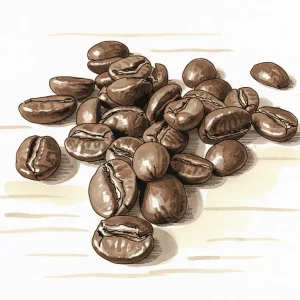PERU
This Peruvian coffee grows at 1,600 to 2,000 meters in Cajamarca, developing a bright, gentle acidity. Through traditional hand processing and nutrient-rich volcanic soils, its balanced flavor gains extra hints of chocolate, nutty undertones, and subtle fruity accents lingering throughout.
PERU Beans
Showing 1–16 of 165 results
De goedkoopste prijzen per 1 kg worden weergegeven
-
Acatenango
van Man met de Baard -
Albizia Decaf
-
Allegro, decaffeinated
van Simon Lévelt€ 31,80 -
Andes
-
Andrès Torres Geisha
van Keen Coffee€ 72,00 -
Aurora Mundo
-
Avance
van Uncategorised -
Bakkie Emmen
van Drents Bakkie -
Bakkie Liefde
van Drents Bakkie -
Bakkie Peru
van Drents Bakkie -
Bakkie Puur
van Drents Bakkie -
Bakkie Troost
van Drents Bakkie -
Balance
van Uncategorised -
Barista
van Simon Lévelt€ 95,60 -
Bean Impact
van Peeze€ 35,24 -
Bean Impact – medium roast koffiebonen
van Peeze€ 33,72
More About PERU
Origin and Conditions
Peru provides a captivating coffee journey thanks to its varied geography and high-altitude farms. Most coffee plantations sit on the Andean slopes, often as high as 2,000 meters. Cajamarca and Puno, in particular, stand out for microclimates that allow cherries to ripen slowly, preserving acids and natural sweetness. Volcanic soil further enriches the beans, while smaller farms use shade-growing methods that help maintain biodiversity and stable soil conditions.
Typical Coffee Varieties
Arabica dominates in Peru, featuring classic lines like Typica, Bourbon, and Caturra. These varieties combine fruit-forward nuances with caramelly undertones. In rust-prone areas, farmers sometimes plant Catimor and other resistant hybrids. Cajamarca’s high altitudes bring out smooth complexity, marked by chocolate hints and occasionally bright berry notes.
Processing Methods
Peru is known for the washed process, where depulped beans ferment briefly in water before being rinsed clean. This technique results in a crisp, clean cup. Growing interest in natural and honey processes has led to bolder flavors, with fruitier or wine-like nuances in the final brew. These evolving techniques let farmers showcase diverse tastes, from sweet and chocolatey to more adventurous profiles.
Flavor and Extraction
Typical Peruvian coffees exhibit a gentle to medium acidity, with an easygoing body and comforting flavors such as milk chocolate, caramel, and nutty undertones. Subtle fruit highlights, like apples or soft berries, often emerge too. Medium roasts preserve a satisfying balance of brightness and sweetness, while darker roasts bring out heavier cocoa or toasted undertones.
Brewing Tips at Grachten Beans
Grachten Beans in Amsterdam focuses on perfect equipment settings to highlight the best of Peruvian coffees. A V60 or Chemex emphasizes clarity and fruity brightness, whereas a French press draws out creamier textures and chocolate notes. A medium grind and water around 93°C suit these beans well. For espresso, a lighter-to-medium roast shines, especially with slightly lower brew temperatures to preserve delicate fruit hints.
Small Farmers and Cooperatives
Over one hundred thousand smallholder farmers produce Peru’s coffee, frequently united in cooperatives that provide support with training, logistics, and quality control. Annually, Peru exports around 3.5 to 4 million 60-kg bags, a substantial portion of which meets organic standards. These cooperatives maintain consistent production and assist growers with sustainable methods that protect both the environment and local communities.
Sustainability and Organic Practices
A large share of Peruvian coffee carries Fair Trade or organic certification. Farmers rely on shade trees, composted pulp as fertilizer, and careful weed management to preserve rich ecosystems. This approach has positioned Peru as one of the world’s leading organic coffee exporters, giving consumers a responsible and flavorful choice.
From Bean to Cup in Amsterdam
Grachten Beans offers detailed brew recommendations for specialty batches sourced from Cajamarca and Puno. Each cup demonstrates a balanced harmony of fruit and chocolate, enhanced by mindful roasting and thoughtful extraction. The result is a warm, inviting coffee moment that reflects both Peru’s natural bounty and Amsterdam’s ever-evolving coffee culture.


